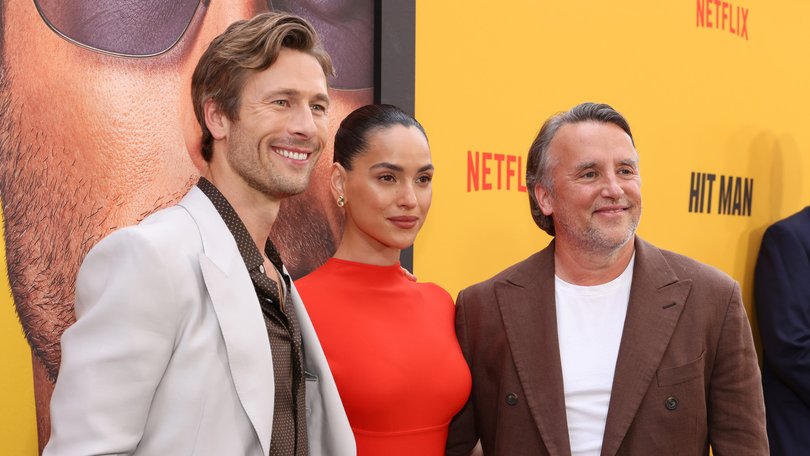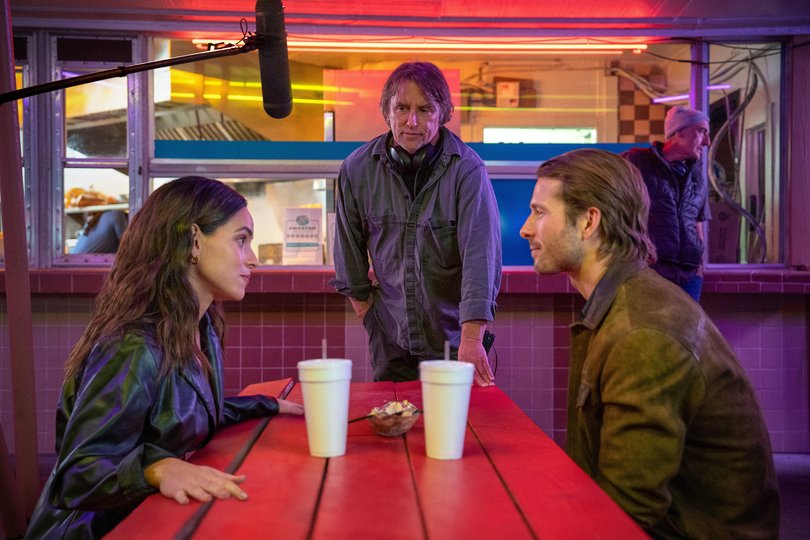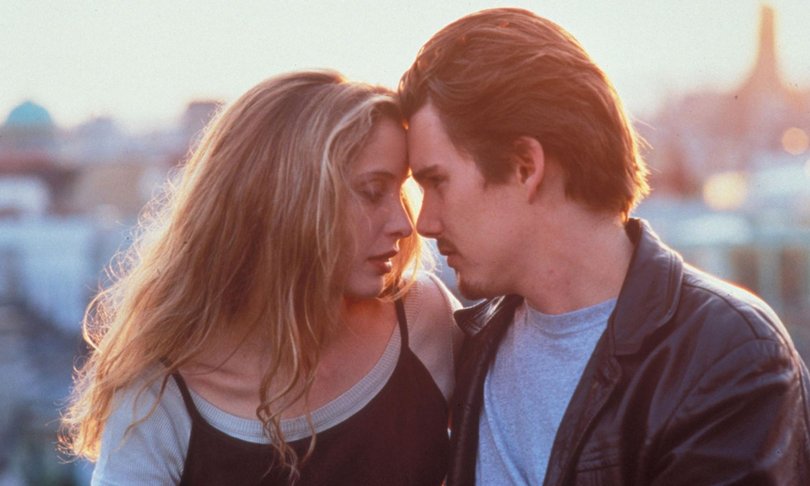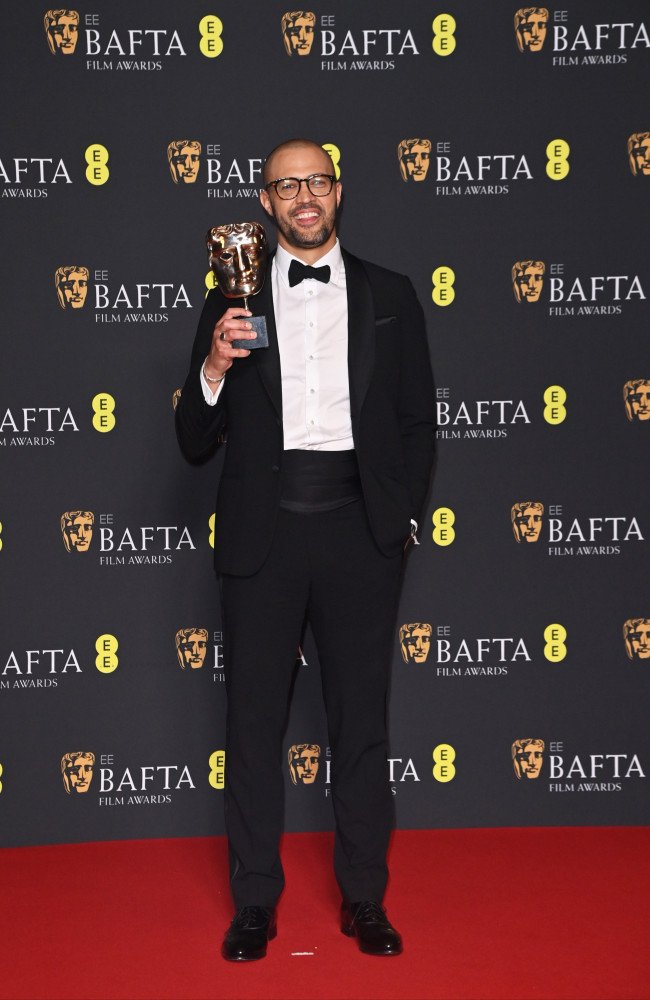Richard Linklater slams Hollywood studios for ‘juvenile’ and ‘comic book’ movies
Richard Linklater wants Hollywood studios to make more adult movies instead of wanting ‘everyone to be a child forever’.

Richard Linklater has seen a lot of change in the industry since his debut feature, Slackers, in 1990.
The filmmaker known for indie favourites Before Sunrise and Boyhood and riotous comedies School of Rock and Dazed and Confused has a new movie out and it’s going straight to streaming.
Hit Man stars Glen Powell as an unassuming professor who side hustles for the cops as a fake hitman catching out people seeking a contract killer. It’s funny, smart and has complicated characters who make murky choices.
Sign up to The Nightly's newsletters.
Get the first look at the digital newspaper, curated daily stories and breaking headlines delivered to your inbox.
By continuing you agree to our Terms and Privacy Policy.It’s also the kind of movie big Hollywood studios rarely make for cinemas anymore.
Linklater told The Nightly that while audience tastes haven’t changed in the indie space, the industry has.
“People just want to see something they connect with,” he said. “But in the bigger culture, let’s talk about the studio level and mass entertainment. It’s changed quite a bit.
“When I first came along, I had been lucky, studios took chances on young talent. If you wrote a good script, they might throw you a few million to make a movie.”

Linklater contends that studios don’t appear to be in that business anymore, a shift he lamented.
“It’s kind of juvenile, it’s kind of comic book. They’re doing down to the 13-year-old level. When I was a 13-year-old, I was watching an adult world, being invited into it. I couldn’t wait. All these complex things I didn’t even fully understand, like passion, sex and intrigue.
“I was watching the great movies of, in my era, it was the 70s. These were great adult films. I couldn’t wait to get there. I was a little scared but I still couldn’t wait to get there.
“Now they just want everyone to be a child forever, let’s just keep an adolescent mentality, let’s not graduate to deeper subjects, let’s not take on adult responsibilities or situations, let’s not embrace those contradictions and multitudes. Let’s just keep it at this level, it’s so simple.
“So, I’ve seen that change. That’s the studio system.”

For two decades, you’d be hard-pressed to find an original story (non-franchise, non-adaptation, non-sequel) in the top 10 global box office in any year.
And with the accelerated audience move to streaming platforms (Hit Man is going direct to Netflix after its Venice Film Festival debut), studios are even more reluctant to take a “risk” on non-intellectual property bets.
That’s meant a lot of Marvel, a lot of Star Wars, a lot of Godzilla, a lot of Planet of the Apes, a lot of Scream, a lot of Harry Potters and a lot of Fast and Furious movies.
Studio bosses, including Warner Bros Discovery’s David Zaslav, have openly declared they want to exploit IP as much as possible.
The implication is that they’re the only movies making money. But is it the chicken or the egg? Train an audience to only expect franchise blockbusters and increasingly they’ll stay away from cinemas for everything else.
And a known IP movie is no guarantee of a hit. Furiosa, the fifth Mad Max movie, is currently struggling at the box office, The Marvels grossed a paltry $US206 million against a production budget that was even higher than that.
Hit Man is the kind of movie that would’ve played well in a theatre with a crowd if there was still a robust cinema-going culture. And it only had a reported $US8.8 million production budget. It doesn’t need to make $US700 million to be a hit.
Linklater is hardly the lone voice on this issue. Writer and first time director Cord Jefferson made a case for the mid-budget movie in his speech at the Oscars after he won an adapted screenplay award for $US10 million budgeted film American Fiction.

He said, “It’s a plea to acknowledge and recognise that there are so many people out there who want the opportunity that I was given.
“I understand that this is a risk-averse industry, but $200 million movies are also a risk. But you take the risk anyway. Instead of making one $200 million movie, make 20 $10 million movies or 50 $4 million movies.
“I want other people to experience that joy. The next Martin Scorsese is out there. The next Greta [Gerwig] is out there. The next Christopher Nolan is out there. They just want a shot. And we can give them one.”

